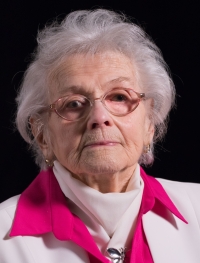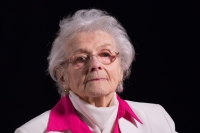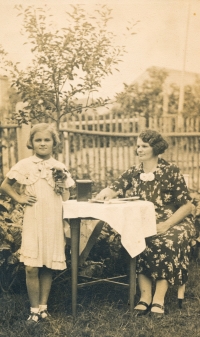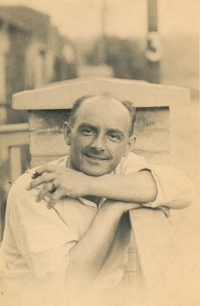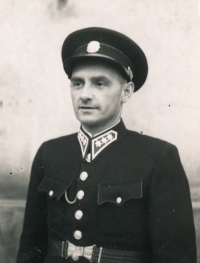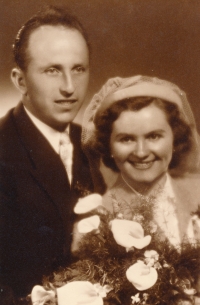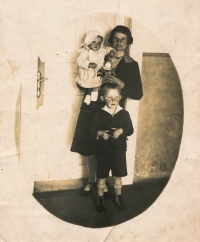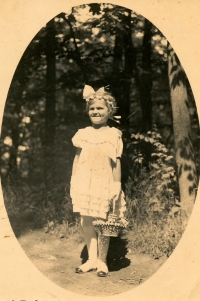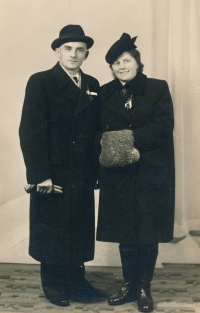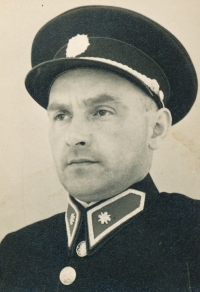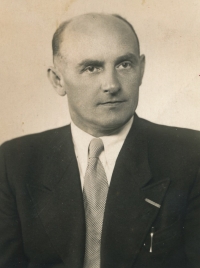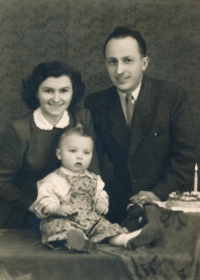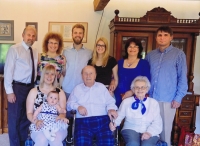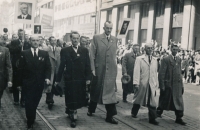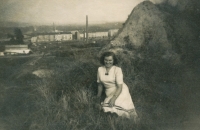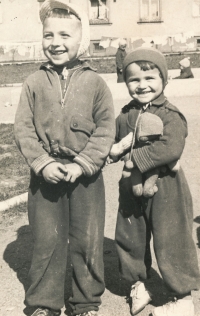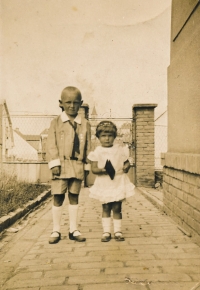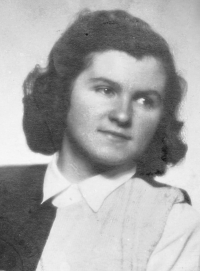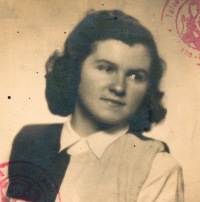Říkali jsme si: Dokud je hlava na krku, nic není ztraceno

Download image
Blažena Mlejnková, née Voborská, was born on the 24th of February in 1929 in Hostivice, into the family of Anna and František Voborský. She grew up with her older brother František. Her mom died of heart failure in 1940, her father soon remarried. She spent the WWII in Praha – Dejvice. She describes in great detail everyday life during the war and the local events of the liberation of Prague. Her father was a police officer until 1948. After the February 1948 coup d’etat, her father was fired as an anti-Communist and counterrevolutionary element and in 1949, he was sentenced to death for alleged [anti-Communist] resistance activity. Later, the sentence was commuted to life. František Voborský was released after fifteen years, in 1964, with considerable health damage and he died two years later. Blažena married to Moravia in 1952 and lived with her family in Přerov. She worked a a seamstress and later as a postal clerk. She raised three children.
